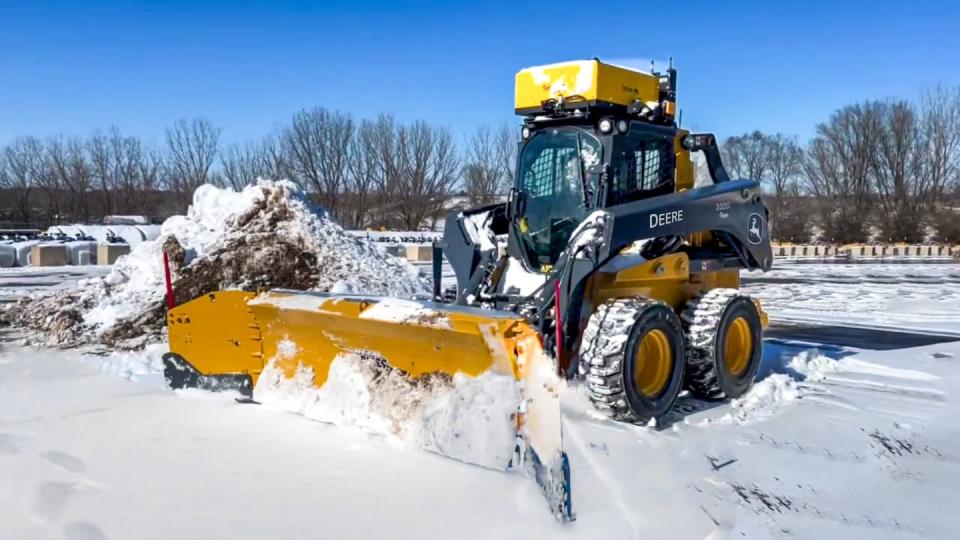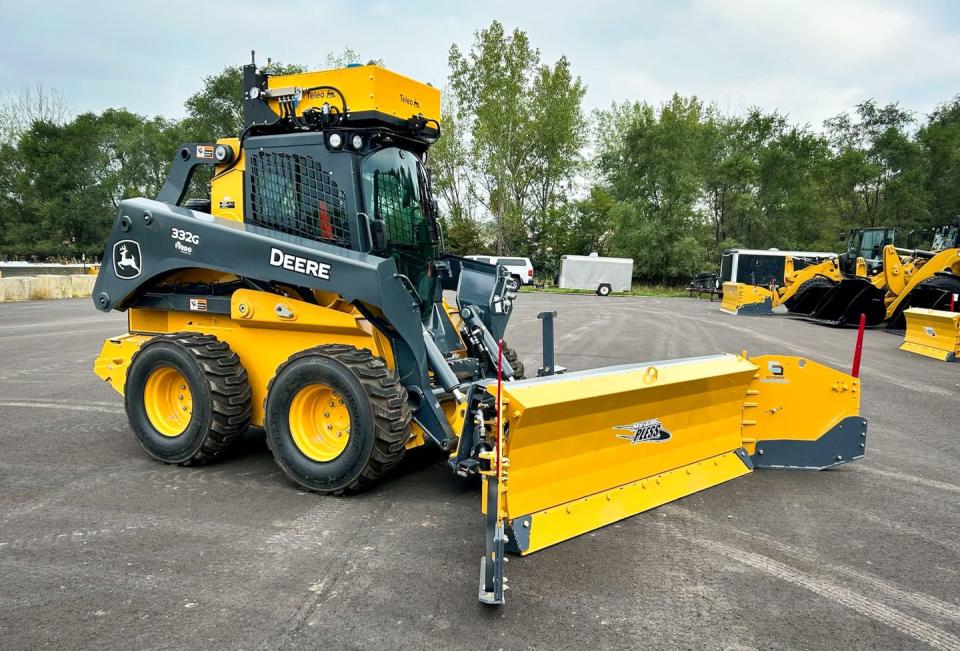The World’s First Autonomous Snowplows Are in Service

Jordan Smith was in Las Vegas looking for snowplow driving simulators. Seeking such devices in the Nevada desert seems odd, until you realize that Smith, the owner of a major North American supplier of snow removal machinery called Storm Equipment, was in Sin City attending CON-EXPO, a giant construction equipment trade show.
"There are a lot of contractors there who do snow," he says. But, after testing out four different ersatz driver training models, he came away disappointed. "They just didn't feel like real plows."
Then, Smith happened on a booth for a new startup called Teleo. Founded in 2020 by a pair of engineers formerly employed in Lyft's Level 5 autonomous vehicle project, the company was not hawking an instructive simulator. Instead, it was peddling a remote-control module.

This device is capable of being connected, via a proprietary black box and a zillion lines of code, to any large machine that operates in a zoned-off area—like a front loader or bulldozer at a construction or mining site, or a snowplow in the parking lot of a 1,000,000 square-foot Amazon distribution center. Then, using a Teleo remote controller, an operator can, from the comfort of, well, anywhere, move a machine around remotely, or even set it up to conduct repetitive tasks, autonomously.
Smith hopped into Teleo's hot seat. Not only did its controls provide more feedback and, according to him, "feel like a real machine," he was able to toggle back and forth between operating a machine in California and one in Nevada. After 90 minutes, he had an epiphany. "We shifted our thinking on the entire project, and instead of engaging with a simulator company to train our operators, we invested in this technology."
Minnesota in Winter Is the First Test
The resulting partnership between Teleo and Storm Services was put to the test this past winter in Minnesota. Smith equipped a few of the heavy machines his subsidiary, Storm Snow Services, uses to clear giant corporate parking lots, and waited for the white stuff to fall. Unfortunately, he was foiled by the weather, somewhat.
"We had record low snowfall this winter, but we did put it into service on one of our sites," Smith says. Response from his operators was unanimous and universal. According to Smith, "It was more comfortable than sitting in a cold cabin. The visibility was better because they have the full surround cameras. You don't have as much noise and vibration. You're not bouncing around. And you can work on multiple different job sites in one seat."
All of this aligns with the intended-use-case scenarios defined by Teleo's founders. "A lot of the work that underlies the world we live in—from the roads that get built, to the buildings that get built, to the areas that need clearing—there are a lot of operators who work in harsh environments operating machines for eight, 10 hours a day in very difficult and stressful conditions," says Vinay Shet, CEO of Teleo.
Not surprisingly, these jobs are hard to fill. Pay is low, given the stress and strain. Training options were hampered by the pandemic, causing a bottleneck in the pipeline of operators. And job retention is limited by better, less stressful commercial driving options.
No Commercial License Required
Teleo aims to assist in two ways. First, according to Shet, "It makes the job easier, and more accessible." This may allow contractors to attract a wider pool of operators, and retain quality operators. Second, because the machines are partially autonomous and can run on their own some of the time, a single person can supervise multiple machines simultaneously. "That will further boost productivity of the operators," Shet says. Yay! More work! Just what everyone wants.
Teleo also lowers the bar a bit on who can be an operator. "There is no commercial driving license per se in this world," Shet says. Instead, operators are trained on Teleo's intuitive system. "We've even seen that people who don't have experience operating machines are able to sit behind our controls," Shet says.
Also, anyone with a stable commercial internet connection can control the machines from anywhere on earth; a demonstration was recently completed where someone in Texas controlled a machine in Finland. So, like many other jobs in race-to-the-bottom post-industrial American capitalism, the positions could be farmed out to low-wage, low-oversight workers overseas. Although not right away. Currently the technology in use needs a network in close proximity, so still better for nearby parking lots than remote city streets.
Though Teleo has fewer than a dozen machines testing its tech worldwide, there is strong interest, and a distribution network is being developed. And while this technology can currently only be used in closed locations, it seems inevitable that it will roll out further. If the idea of a massive snowplow controlled by a driver far away in a warm, cozy office who might fall asleep keeps you awake at night, rest assured that there are safety measures in place that bring the plow to a stop if it senses a lack of attention from the operator. Before we ended our conversation, we asked Shet if remote-controlled transport of human cargo was in the works.
"I think this market we're after with the machines is very large. And we have a very excited customer base waiting for us to grow and start deploying," Shet says. "So, no. No school buses yet. But interesting idea."
You Might Also Like

 Yahoo Autos
Yahoo Autos 